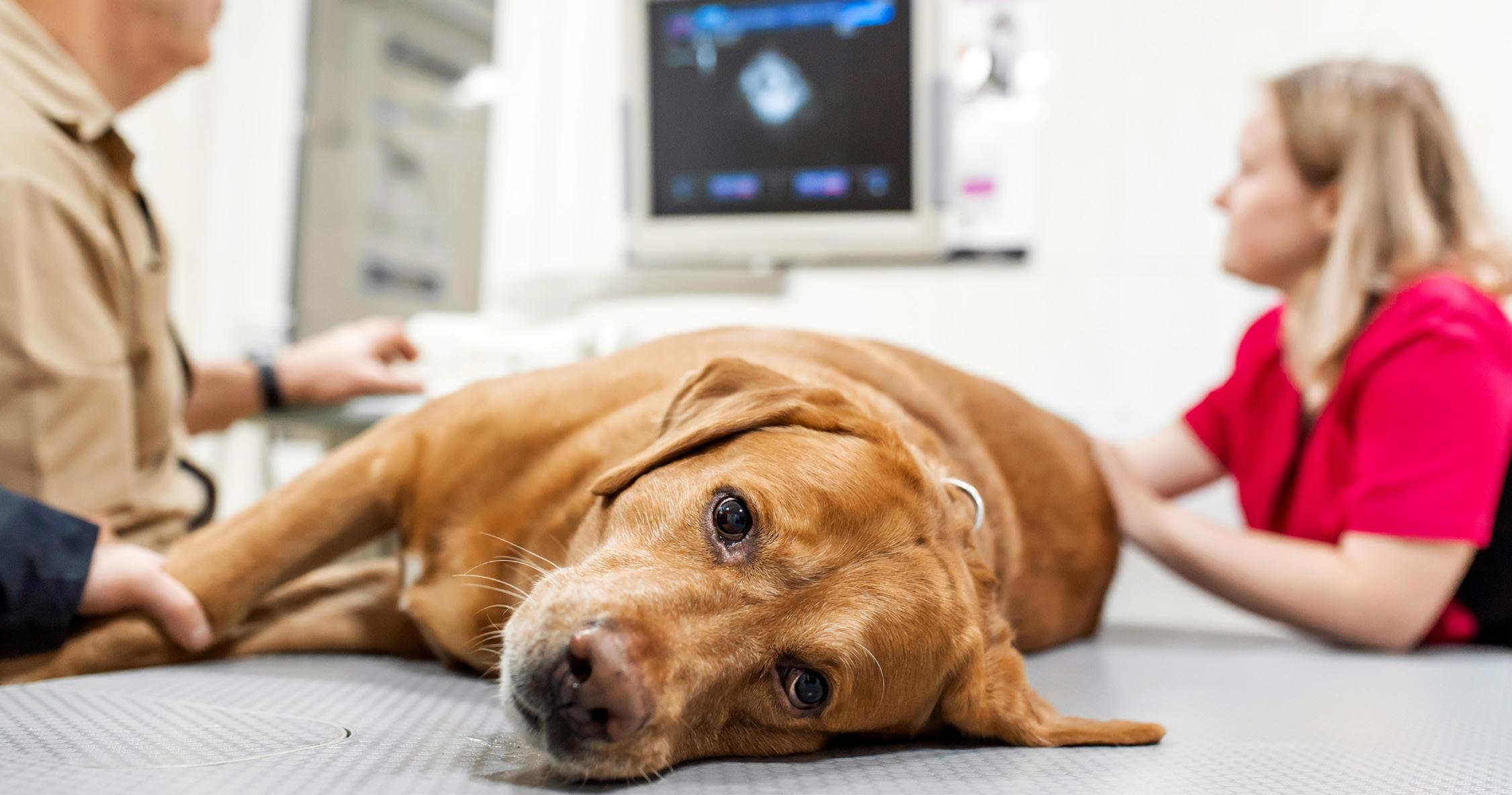
3 minute read
The Heart of the Matter.
H E A L T H & W E L L N E S S
a look into heart health
Advertisement
WRITTEN BY JAKE JACOBSON, DVM, DACVIM (Cardiology) Charleston Veterinary Cardiology

The heart is a four-chambered muscle that pumps blood to your organs and muscles. Just like in people, there are 4 valves present that are necessary to keep blood moving in a forward direction, preventing backflow of blood (called regurgitation). Every time the heart squeezes, blood flows throughout your body, delivering ingredients critical to survival such as oxygen and nutrients. Did you know that the heart beats about 100,000 times in one day?!
Heart Disease
Dogs and cats most often acquire problems with the heart muscle or heart valves. These conditions can result in inefficiency of the cardiovascular system that may promote symptoms. If the heart is unable to pump oxygenated blood to the body, exercise intolerance, weakness or collapse may ensue. Did you know that dogs and cats rarely get heart attacks?! Unlike in people, coronary artery disease (also called atherosclerosis) is less of a concern.
Heart Murmur
A murmur is produced when turbulent blood flow develops inside the heart. This is most often from a leaky valve/backflow of blood (called regurgitation) or a narrow valve opening (called stenosis). A murmur can be detected by your veterinarian by listening to your pet’s heart. Since the loudness, or grade, of the heart murmur does not always predict the severity of disease, additional testing is needed once a concerning heart murmur is noted by your veterinarian.
Arrhythmias
There is an electrical impulse which travels through the heart that ultimately is converted to energy that stimulates the heartbeat. An irregularity of this electricity is called an arrhythmia. If the heart is beating too fast, this is called tachycardia. If the heart is beating too slow, this is called bradycardia. An arrhythmia can result in reduced blood flow, causing collapse or fainting (syncope). An electrocardiogram (ECG or EKG) is a safe and non-invasive way to diagnose your pet’s arrhythmia.
Heart Failure
Heart disease is an umbrella term for the type of faulty cardiac condition. When symptoms develop from a particular type of heart disease, the term heart failure is used. Heart failure is when fluid builds up in the abdomen (called ascites), around the lungs (called pleural effusion) and/or in the lungs (called pulmonary edema). Heart failure may manifest as coughing, trouble breathing or abdominal distension.

Cardiac Screening Nutrition
Pets remain asymptomatic through many stages of heart disease. Therefore, it is best to take your pet to the veterinarian every year to screen for heart disease. Your veterinarian will listen to your pet’s heart for abnormal sounds like murmurs or irregular rhythms and will look for other subtle signs of heart disease. If your veterinarian suspects heart disease, they may measure the blood pressure or suggest additional tests like x-rays, a cardiac ultrasound (called an echocardiogram), or an ECG to confirm the diagnosis and determine the cause so that treatment can be started.
Cardiac Therapy
While there is no cure for congestive heart failure (CHF), fortunately there are medications available to help the heart work better, help your pet live longer and enjoy a higher quality of life. Many of the cardiac medications used to treat human cardiac patients are currently available in veterinary medicine as well. Consultation with your veterinarian or a veterinary cardiologist will help determine which medications your dog may need depending on the diagnosis and stage of their disease. In addition to medication, nutrition tailored to heart disease may help slow progression and improve quality of life. Nutrition goals may be geared towards increasing muscle mass or minimizing fluid retention by eating a highprotein, low-sodium diet. Dietary supplements, such as fish oil (shown to improve arrhythmia management) or taurine (an essential amino acid for heart health), may also be warranted.
Bio
Dr. Jacobson was born and raised in Charleston, SC. He is a Clemson graduate who earned his veterinary degree from the University of Georgia. He completed additional training at Colorado State University before a three-year cardiology residency at the Animal Medical Center in New York. He just started South Carolina’s first and only solo cardiology practice, Charleston Veterinary Cardiology. His professional goal is to help the community with the ever-growing demand for specialty care. ■




